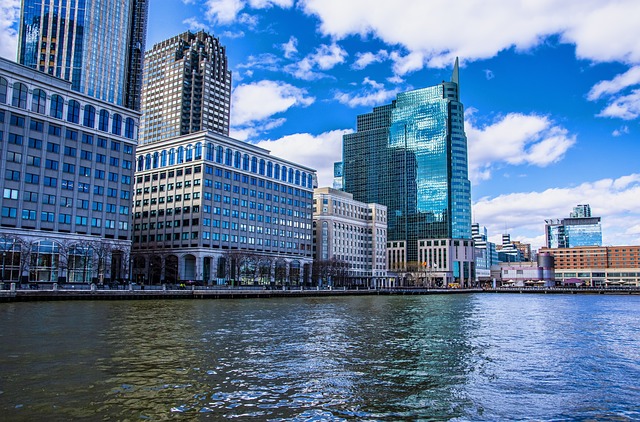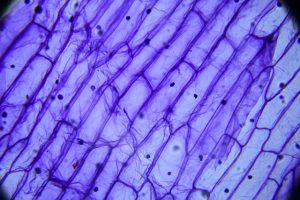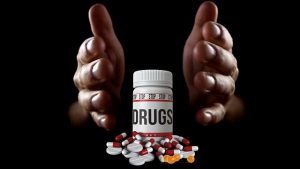Comprehensive Holistic Therapy for Addiction Recovery: A New Jersey Guide
Holistic therapy has revolutionized drug rehab in New Jersey by offering a comprehensive treatment approach that addresses all aspects of an individual's health, beyond just physical symptoms. This multifaceted method includes medical detoxification…….

Holistic therapy has revolutionized drug rehab in New Jersey by offering a comprehensive treatment approach that addresses all aspects of an individual's health, beyond just physical symptoms. This multifaceted method includes medical detoxification, evidence-based practices like medication-assisted treatment (MAT), and a wide array of complementary therapies such as nutritional counseling, meditation, yoga, acupuncture, and massage therapy. These treatments are tailored to each patient's unique needs, with the aim of fostering both physical healing and emotional well-being for sustained recovery. New Jersey's drug rehab centers have embraced this integrative model, ensuring that individuals receive personalized care that includes specialized medical detox services and access to CAM therapies like biofeedback and herbal supplements. Nutritional counseling is a key component, aiming to correct biochemical imbalances due to substance abuse and promote a balanced diet for overall health. Mindfulness and meditation are used to help individuals manage addiction by reducing stress and anxiety, while physical fitness programs are integrated to support mental well-being and discipline, contributing to a healthier lifestyle during recovery. This holistic drug rehab approach in New Jersey reflects the growing understanding that addressing addiction comprehensively leads to better outcomes.
Holistic therapy for addiction treatment in New Jersey represents a comprehensive, integrative approach that extends beyond conventional medical practices to encompass a wide array of wellness strategies. This article delineates the multifaceted nature of holistic therapy within drug rehab settings across the state, emphasizing its effectiveness in addressing both the physiological and psychological aspects of substance abuse. The initial phase, medical detoxification, is carefully considered to ensure safe withdrawal from substances, laying the foundation for subsequent treatments. Complementary and alternative medicine (CAM) modalities are explored, highlighting their implementation within New Jersey drug rehab centers. Nutritional counseling emerges as a pivotal component, offering guidance on dietary choices that support recovery. Mindfulness and meditation are examined for their role in fostering mental clarity and emotional balance during the healing process. The therapeutic benefits of physical fitness, embracing nature, art and music therapies, and equine therapy are also investigated, providing a diverse toolkit for addiction recovery. Spirituality and group support prove instrumental in forging connections with others on similar journeys. Aftercare strategies are discussed to help individuals maintain sobriety post-treatment. Choosing the best holistic drug rehab center in New Jersey is a significant decision, one that is informed by success stories and navigated through understanding insurance options and payment structures. Lastly, the article addresses how traditional therapy practices are seamlessly integrated with holistic approaches in drug rehab facilities within New Jersey, offering a holistic framework for addiction recovery.
- Understanding Holistic Therapy in the Context of Drug Rehab New Jersey
- The Role of Medical Detoxification in Holistic Addiction Treatment Programs NJ
- Exploring Complementary and Alternative Medicine (CAM) in New Jersey Drug Rehab Centers
- The Importance of Nutritional Counseling in Overcoming Addiction in NJ Rehabilitation Facilities
- How Mindfulness and Meditation Contribute to Recovery in New Jersey Drug Rehab Centers
- The Impact of Physical Fitness on Substance Abuse Recovery in NJ
Understanding Holistic Therapy in the Context of Drug Rehab New Jersey

Holistic therapy emerges as a comprehensive approach within drug rehab New Jersey, offering individuals a multifaceted treatment strategy that addresses both the physical and psychological aspects of addiction. Unlike conventional methods that may solely focus on the detoxification process or medication, holistic therapy incorporates a variety of techniques aimed at healing the whole person. This includes practices such as meditation, yoga, nutritional counseling, and alternative therapies like acupuncture or massage, all of which contribute to the overall well-being of the patient. These modalities work in tandem with traditional drug rehab programs to provide a more balanced and personalized recovery journey. In New Jersey, where addiction treatment centers are abundant, holistic therapy stands out by offering a unique blend of evidence-based treatments with complementary practices that cater to the individual’s unique needs, fostering a supportive environment for sustained recovery. The integration of these diverse therapeutic approaches in drug rehab New Jersey settings is crucial for addressing the root causes of addiction and promoting long-term sobriety.
The Role of Medical Detoxification in Holistic Addiction Treatment Programs NJ

Holistic therapy for addiction treatment in New Jersey encompasses a comprehensive approach that recognizes the multifaceted nature of substance use disorders. A pivotal component of this approach is medical detoxification, which serves as the initial step in the recovery journey. Medical detoxification safely manages the acute physical symptoms of withdrawal that occur when an individual stops using drugs or alcohol. This process is critical as it addresses the immediate health risks associated with substance cessation and provides a stable foundation for subsequent treatment phases. In NJ, specialized drug rehab centers offer medical detox services, ensuring patients receive personalized care tailored to their unique physiological responses to withdrawal. These centers employ evidence-based practices in conjunction with holistic modalities such as nutrition counseling, meditation, and alternative therapies to support the healing process. The integration of these methods not only aids in alleviating the physical pain of detoxification but also begins the work of addressing the psychological and emotional aspects of addiction, laying the groundwork for long-term recovery. Through the combination of medical oversight and holistic care, individuals in New Jersey have access to treatment programs that support their journey towards sobriety and a healthier life.
Exploring Complementary and Alternative Medicine (CAM) in New Jersey Drug Rehab Centers

New Jersey’s approach to addiction treatment has evolved to include a comprehensive array of therapies, with a significant emphasis on Complementary and Alternative Medicine (CAM) within drug rehab centers. These centers are increasingly integrating CAM practices such as acupuncture, meditation, nutritional counseling, and herbal supplements alongside traditional treatments like counseling and medication-assisted treatment (MAT). The rationale behind this holistic approach is to address the whole person, considering their physical, emotional, mental, and spiritual well-being. This multifaceted strategy not only aims to alleviate withdrawal symptoms but also helps individuals develop healthier lifestyle patterns that support long-term sobriety. In drug rehab New Jersey centers, patients have access to a wide range of CAM therapies tailored to their unique needs, which can include biofeedback, massage therapy, and yoga. These complementary methods are designed to enhance the effectiveness of conventional treatment modalities, promoting overall wellness and resilience in recovery. By offering drug rehab New Jersey residents both traditional and alternative treatments, these centers provide a more personalized and effective path to healing and recovery.
The Importance of Nutritional Counseling in Overcoming Addiction in NJ Rehabilitation Facilities

In the journey toward recovery from addiction, nutritional counseling plays a pivotal role within New Jersey’s drug rehab facilities. The body’s biochemical balance can be significantly affected by substance abuse, leading to nutritional deficiencies that exacerbate both the physical and psychological challenges of withdrawal. Holistic therapy in NJ recognizes that a well-balanced diet is not just about sustenance but also about supporting overall health and well-being. Nutritional counselors at these facilities work closely with clients to assess their dietary needs, restore nutritional deficiencies, and educate them on the impact of proper nutrition during recovery. This individualized approach helps to stabilize mood and energy levels, which are critical for maintaining focus and resilience throughout the rehabilitation process. By integrating nutritional counseling with other evidence-based therapies offered by New Jersey’s drug rehab centers, individuals have a comprehensive toolkit for long-term sobriety and improved health outcomes.
How Mindfulness and Meditation Contribute to Recovery in New Jersey Drug Rehab Centers

Mindfulness and meditation play pivotal roles in the recovery journey at New Jersey drug rehab centers, offering individuals effective tools to navigate the challenges of addiction. These practices help cultivate a heightened awareness of one’s thoughts, emotions, and physical sensations without judgment or reaction. By fostering a state of present-moment focus, mindfulness reduces the likelihood of triggers leading to relapse. Meditation complements this by promoting relaxation and stress reduction, both of which are crucial for maintaining sobriety. Incorporating these techniques within the structured environment of drug rehab in New Jersey allows patients to experience a deeper sense of calm and control over their thoughts and actions. This holistic approach not only aids in managing cravings but also supports emotional healing and cognitive restructuring, which are essential for long-term recovery. The integration of mindfulness and meditation into treatment plans at drug rehab centers in New Jersey reflects a growing recognition of the importance of addressing the whole person, body, mind, and spirit, to overcome addiction effectively.
The Impact of Physical Fitness on Substance Abuse Recovery in NJ

In New Jersey, the integration of physical fitness into holistic therapy for substance abuse recovery has shown promising results. Engaging in regular exercise not only improves physical health but also positively impacts mental well-being, which is crucial during the recovery process. The release of endorphins during physical activity can help alleviate withdrawal symptoms and reduce stress, which are common challenges faced by individuals in recovery from drug abuse. Moreover, consistent physical activity can foster a sense of discipline and accomplishment, contributing to improved self-esteem and a healthier lifestyle. In addition, many drug rehab centers in New Jersey have recognized the benefits of incorporating fitness routines into their treatment programs. These centers offer activities such as yoga, meditation, cardiovascular training, and strength conditioning, tailored to each individual’s needs and abilities. Such holistic approaches complement traditional therapy methods by providing a balanced path to recovery that addresses both the physical and psychological aspects of addiction, ultimately enhancing the overall effectiveness of drug rehab in New Jersey.
Holistic therapy for addiction treatment in New Jersey offers a comprehensive approach that integrates medical detoxification, complementary and alternative medicine practices, nutritional counseling, and mindfulness techniques within drug rehab programs. This multifaceted strategy underscores the importance of addressing the whole person—physically, mentally, and spiritually—to foster lasting recovery from substance abuse. Through tailored interventions that prioritize individual needs, New Jersey’s holistic addiction treatment centers aim to equip individuals with the tools necessary for sustained well-being, emphasizing the role of physical fitness as a critical component in the journey toward healing. By embracing this approach, these rehab centers across the state provide a robust framework for recovery that aligns with the highest standards of effective addiction treatment.









